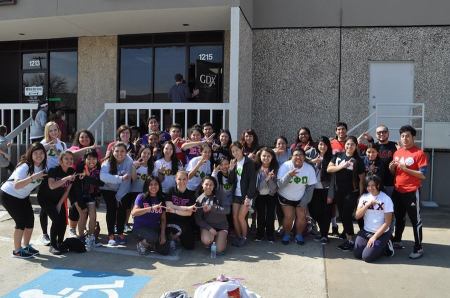SMU is launching a Greek Life Diversity Task Force to review campus fraternity and sorority life and to determine if changes need to be made to support diversity and encourage interaction amongst student organizations.
The task force consists of 29 members of the SMU community including students, faculty, staff, advisors to fraternities and sororities, three members of the SMU Board of Trustees and one fraternity alumnus.
Joanne Vogel, associate vice president of Student Affairs and dean of Student Life, and Creston C. Lynch, director of Multicultural Student Affairs and National Pan-Hellenic Conference advisor, are serving as chairs of the task fair.
According to Vogel, discussion for the creation of the task force began after recruitment this January. The recently publicized events surrounding discrimination at other universities propelled SMU to getting the task force started quickly.
Members of the task force were chosen based on recommendations. Vogel said that they received more requests then spots available.
“We sought recommendations from other administrators, faculty, staff and other students,” Vogel said. “We tried to combine the list quickly.”
Vogel stated that they chose members based on the broadest representation at SMU and kept the task force smaller so they could move forward efficiently.
The task force will be examining the four Greek Councils on SMU’s campus: the National Pan-Hellenic Council (NPHC), the Interfraternity Council (IFC), the National Panhellenic Conference (NPC) and the Multicultural Greek Council (MGC). According to Lynch, almost half of SMU undergraduates participate in fraternity and sorority life.

“It is important that student participation in these groups be open to reflecting the ethnic and cultural diversity of our campus,” Lynch said in a press release.
Vogel hopes that the SMU community and Greek Life Diversity Task Force will work out everything together. She hopes to look at the culture of SMU and what different groups see as areas of importance at the university.
“My goal is to ensure that any student that wants to join an organization feels like they are able to without any barriers,” Vogel said.
The task force is reviewing various aspects of Greek life diversity including how councils interact, how familiar students are with different areas of campus and collaboration among the SMU community.
Areas of questioning includes barriers to enhancing diversity of membership within each fraternity and sorority; outreach and recruitment practices of current members, alumni and national organizations; historical and current traditions and practices of organizations that may discourage diverse participation; how the presence of organizations impacts positively or negatively the social fabric of SMU with respect to diversity; and other issues from discussions about Greek life diversity on campus that could impact the SMU student experience.
The task force is also looking into positive programming within residential commons to encourage diversity among students regardless of Greek affiliation; new Greek traditions that could positively contribute to diversity; strategies for enhancing connection, communication and community across all four councils; and additional ways the university can support each organization in their new practices.
According to SMU, the task force will be looking for solutions both within and outside of SMU to develop new practices that enhance diverse participation in Greek organizations and “ensure that all members demonstrate personal responsibility and sincere regard and respect for others.”
The Greek Life Diversity Task Force will issue a final report to the vice president for Student Affairs in December 2015 to be reviewed by President Turner and the SMU Board of Trustees. However, the Greek Life Diversity Task Force and Student Affairs Office may implement recommendations before the issuance of the final report.
The Daily Campus will continue to update this story as more information becomes available.








